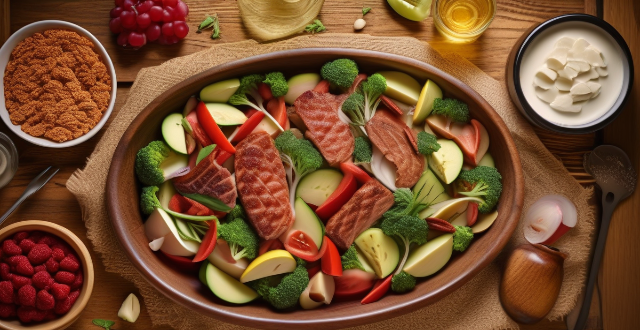The timing of your meals can have a significant impact on your metabolism and weight loss goals. Studies have shown that eating earlier in the day can help you burn more calories throughout the day and reduce your risk of overeating at night. The best time to eat for weight loss depends on your individual preferences and lifestyle, but there are some general guidelines that can help you make the most of your diet. In addition to timing your meals correctly, there are other things you can do to make the most of your diet and achieve your weight loss goals, such as eating more protein, drinking water, avoiding processed foods, eating mindfully, and moving more.

What is the Best Time to Eat for Weight Loss?
Weight loss is a popular topic among people who want to improve their health and appearance. One of the most important factors in weight loss is diet, and timing plays a significant role in determining how effective your diet will be. In this article, we will explore the best time to eat for weight loss and provide some tips on how to make the most of it.
1. The Importance of Timing
The timing of your meals can have a significant impact on your metabolism and weight loss goals. Studies have shown that eating earlier in the day can help you burn more calories throughout the day and reduce your risk of overeating at night. This is because your body's metabolic rate increases during the morning hours, making it easier for you to burn fat.
On the other hand, eating later in the day can slow down your metabolism and lead to weight gain. This is because your body's metabolic rate decreases as the day progresses, making it harder for you to burn fat. Additionally, late-night snacking can disrupt your sleep patterns and increase your risk of overeating the next day.
2. The Best Time to Eat for Weight Loss
The best time to eat for weight loss depends on your individual preferences and lifestyle. However, there are some general guidelines that can help you make the most of your diet:
* *Early Morning*: Eating breakfast early in the morning can jumpstart your metabolism and help you burn more calories throughout the day. It also provides you with energy and focus to start your day off right. Some good breakfast options include eggs, oatmeal, smoothies, and whole-grain toast.
* *Midday*: Midday meals should be balanced and nutritious to keep you energized throughout the afternoon. Avoid sugary snacks or processed foods as they can cause a drop in energy levels and lead to overeating later in the day. Good midday options include salads, sandwiches, soups, and protein shakes.
* *Late Afternoon*: If you work out in the afternoon or evening, it's important to eat something before heading out. A light snack or meal can provide you with energy and prevent muscle fatigue while working out. Good late-afternoon options include fruits, nuts, yogurt, or roasted vegetables.
* *Evening*: Evening meals should be small and low in calories so that you don't feel hungry before bed. Avoid heavy or spicy foods as they can cause heartburn or upset stomachs. Good evening options include soups, salads, grilled fish or chicken, or vegetable stir-fries.
3. Tips for Making the Most of Your Diet
In addition to timing your meals correctly, there are other things you can do to make the most of your diet and achieve your weight loss goals:
* *Eat More Protein*: Protein helps build muscle mass and boosts your metabolism. Good sources of protein include lean meats, poultry, fish, beans, legumes, and dairy products.
* *Drink Water*: Drinking water can help you feel fuller longer and reduce your risk of overeating. Aim for at least eight glasses of water each day.
* *Avoid Processed Foods*: Processed foods are often high in calories, unhealthy fats, and added sugars. Try to choose whole-food alternatives whenever possible.
* *Eat Mindfully*: Pay attention to how much you're eating and try not to overeat. Take breaks between meals to give your brain time to register that you've eaten enough food.
* *Move More*: Exercise not only burns calories but also helps build muscle mass and improves your overall health. Aim for at least 30 minutes of moderate exercise each day.